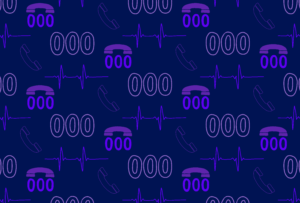Alert: Latest NSW health drug warning
NSW Health has just released another alert regarding severe overdoses relating to the presence of strong opioids and anaesthetics found in cocaine across Greater Sydney (notably, Inner Sydney) in April, May, June and August 2021. This blog contains more information about how to stay safe in light of this alert.
This alert is not the first of its kind. Throughout 2020 and 2021, NSW Health has been warning about the presence of fentanyl and its relative acetylfentanyl in a number of substances, including heroin, cocaine, ketamine, and methamphetamines. These alerts have been issued across Sydney and regional NSW. We’re here to help you understand what these alerts mean, and how to stay safe.
This most recent drug warning relates to heroin and lidocaine found in cocaine.
Why is this important?
Lidocaine (lignocaine) is a local anaesthetic commonly used to cut cocaine. Lidocaine in high doses can stop your heart beating (cardiac arrest). Lidocaine results in numbness similar to cocaine.
Fentanyl and other strong opioids are powerful substances. Fentanyl is a synthetic (man-made) opioid, a bit like morphine, but about 100 times stronger, and up to 100 times stronger than heroin. When taken unknowingly, and when taken by people who don’t usually use opioids, the effects can be harmful, and potentially fatal. Those who take it unknowingly may have less tolerance to opioids and therefore the effects may be more harmful.
Signs and symptoms of heroin and lidocaine overdose
Look out for these signs and call 000 immediately if you notice any of these effects:
- Difficulty breathing, e.g. gurgling or snoring sounds
- Slow, shallow breathing
- Hard to wake
- Loss of consciousness
- Drowsiness
- Confusion
- Fainting
- Cold, clammy skin and low body temperature
- Grayish/ashen (in people with darker skin) or bluish (in people with lighter skin) skin, lips or nails
- Tiny pupils
What are opioids?
Opioids are a class of drugs that include prescribed painkillers like fentanyl, morphine, and oxycodone, and illicit substances like heroin. Opioids interact with opioid receptors in the brain and elicit a range of responses within the body; from feelings of pain relief, to relaxation, pleasure and contentment. They are depressants, meaning they slow your central nervous and respiratory systems, meaning your breathing and heart rate slow down. Sometimes breathing can slow to the point where you are not able to get enough oxygen to your brain.
How can I avoid opioid and fentanyl-related harms?
If you plan on using substances where fentanyl and other strong opioids have been detected (cocaine, ketamine, heroin, methamphetamines), we have a few tips to avoid the risk of fentanyl-related harms:
- Start with small doses and be on the lookout for adverse or unusual effects. Don’t re-dose until you’re sure you’re not experiencing adverse effects. Continue to use in small doses to minimise the risk of harm
- Never dose alone. Always use with friends so you can look out for each other
- Naloxone is a drug carried by medics and emergency services which is designed to reverse the effects of an opioid overdose. When administered effectively, it saves lives. Always call for help if you suspect a friend is suffering adverse effects from whatever you’ve taken. Naloxone is now available at ACON’s NSPs, and is also available for purchase over the counter at a pharmacy, in a nasal spray (called Nyxoid) and injectable (called Prenoxad)
- Look out for your friends: it’s hard to notice your own symptoms. If a friend feels drowsy, their heart rate and breathing slows considerably, or they lose consciousness, seek help immediately. Be aware of these effects especially if you believe you and your friends have consumed a stimulant, like cocaine or methamphetamine. Cocaine and other stimulants speed up your heart rate and central nervous system, so a slowing heart rate is unusual.
- Minimise polydrug use: avoid other depressant drugs, like alcohol, benzodiazepines or other opioids.

What to do in case of an overdose
- Get (medical) help immediately if you or someone else experience any overdose symptoms. If you are at a venue, attract the attention of medical or security staff. If in a private setting, call 000.
- Ask for an ambulance and you will be connected to a control centre for Ambulance NSW. A control centre assistant will ask you a standard set of questions. Answer their questions in a calm and clear manner. Once you have answered all questions, do not hang up the phone, stay on the line and follow any instructions that they give you.
- While you wait for help, put them into the recovery position to facilitate breathing.
- If you have Naloxone and know how to administer it, do so.
Find out more information about these drug alerts and Naloxone.